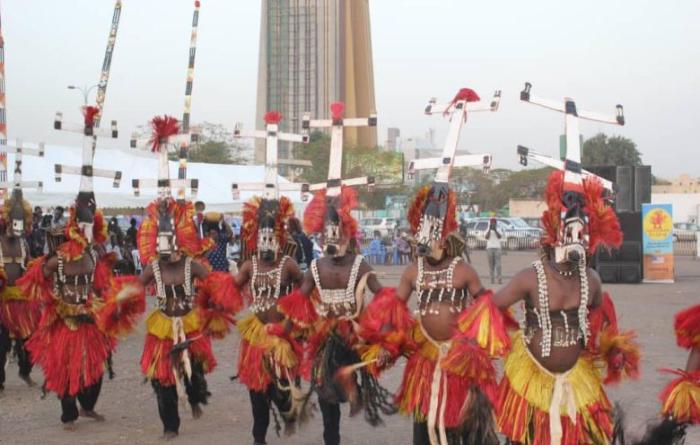
The Dogon people and culture


The 10th Dogon Mask Festival finished early this month.
In the rugged landscapes of Mali, one of the most extraordinary cultural events on the African continent unfolds: the Dogon Mask Festival. This captivating celebration, which takes place among the cliffs of Bandiagara, transcends the mere display of masks. It is a gateway to the rich culture and traditions of the Dogon, a people who have kept their ancestral heritage alive over the centuries.
Annually, during the festival, the Dogon gather to pay homage to their ancestors and protective spirits through traditional dances, music and ceremonies. The masks, crafted with skill and care, personify the mythical and ancestral beings that make up the religious universe of the Dogon. These impressive works of art become portals to a magical and enigmatic world, where the divine intertwines with the earthly.
However, the Dogon Mask Festival goes beyond artistic expression. It is an exaltation of the identity and cultural resistance of a people who have managed to preserve their traditions in the midst of modern challenges. Through their dances and rituals, the Dogon transmit ancestral knowledge and values that have endured from generation to generation, forging a timeless link between the past and the present.
For the lucky visitors who have the privilege of witnessing this festival, the experience is truly unique and enriching. It is a journey into the heart of Africa, where spirituality and tradition merge in a spectacle of colors, sounds and emotions. The Dogon Mask Festival is a tribute to the diversity and beauty of African culture, and an invitation to immerse yourself in the magic of a people who have managed to keep their history and spirit alive. Let yourself be enveloped by the fascination of this unique celebration in the world!
Quoted text from https://onlyone.africa/explore-the-fascination-of-the-dogon-mask-festival/
Who are the Dogon people?
Click the button below to read more about this group of Africans.
Questions for social work and development
What do we learn about colonisation and decolonisation?
What opportunities exist for socio-economic development?
What do we learn about environmental social work?
What do we learn from the story of the Dogon people about gender roles?
What methods and techniques of social work would not apply to the Dogon community?
What approaches to fieldwork world be suitable? How and why?
What research approaches and methods would be suitable? How and why?
What are the psychological and social benefits of ceremonies and festivals?
Islam and Christianity have divided people within cultures. How can this be addressed?
Use the form below to subscibe to Owia Bulletin.
Discover more from Africa Social Work & Development Network | Mtandao waKazi zaJamii naMaendeleo waAfrika
Subscribe to get the latest posts sent to your email.




You must be logged in to post a comment.